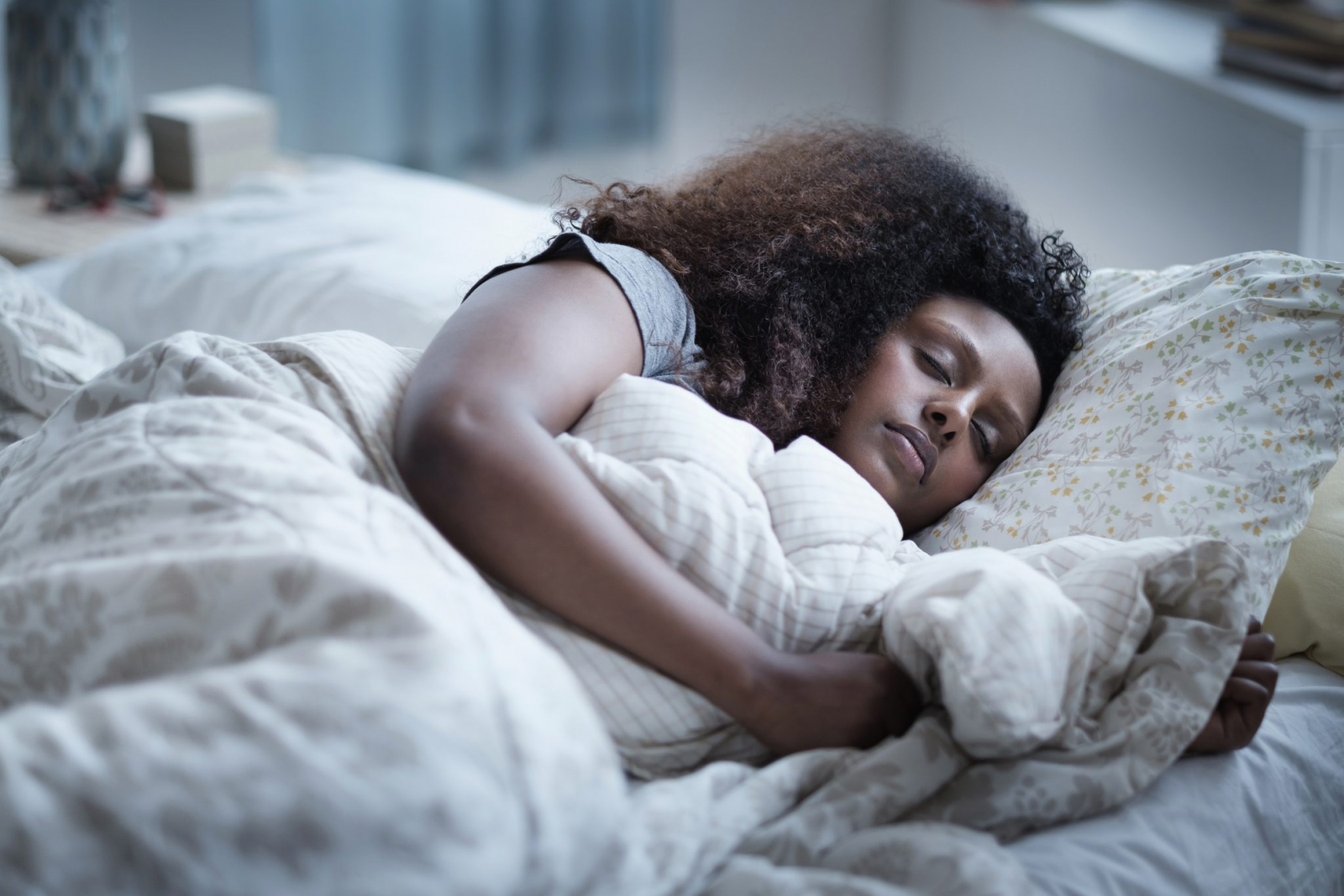Written by Lauren Geall
Have you been experiencing sleep disruption during the coronavirus pandemic? Here’s why your stress levels could be to blame – and what you can do about it.
In 2020, you’d be hard-pressed to find someone who isn’t feeling more stressed than usual. Whether you’re worried about catching Covid-19, concerned about the future of your business or anxious about losing your job, there are a myriad of reasons why this year has been more stressful and worry-inducing than most.
It’s hardly surprising then that so many of us have been struggling with our sleep. According to a study published back in August, one in four of us have dealt with sleep loss caused by worrying since restrictions first came into place back in March – and although our stress levels have fluctuated since then, sleep disruption remains a big problem for many of us.
Because of this, understanding how stress affects our sleep – and what we can do to limit the impact it has on our sleep cycle as a whole – has never been more important. Of course, we’re all aware that feeling stressed when we go to bed isn’t exactly conducive to a restful night – but how else could our heightened stress levels be contributing to the ongoing disruption in our sleep schedules?
“When our internal neuro-chemical systems are working normally, they regulate biological processes like sleep, appetite, mood and energy levels,” says Dr Irshaad Ebrahim, a neuropsychiatrist and co-founder of The London Sleep Centre. “If we are stressed, the Adreno-Cortical System is dysregulated and our energy sources are diverted, resulting in sleep disruption and mood changes.”
This disruption doesn’t just mean we’re getting less sleep – this lack of sleep in turn leads us to feel more stressed, causing us to become trapped in what experts call a “stress-sleep” cycle. It’s a scary term which may sound alarming at first, but learning about this cycle – and understanding how it affects our sleep – is the first step in getting our stress levels under control.

And it’s a step we desperately need to take. Even before the pandemic, one in four British people reported that stress was the main contributing factor for losing sleep, and 54% of people worried about the impact stress was having on their health.
With this in mind, we asked Dr Irshaad Ebrahim to explain everything we need to know about the relationship between stress and sleep – and what we can do to keep that relationship a healthy one.
What is the stress-sleep cycle?
“The ‘stress-sleep cycle’ is when the continuous disruption and poor quality of sleep is caused as a result of a person experiencing periods of stress on a regular basis. For example, if a situation is making you feel stressed, worried or anxious, you might find ‘switching off’ before bed challenging. As a result, you achieve less hours of quality sleep and you’re likely to wake up feeling overtired.
“Sleep deprivation affects our ability to regulate emotions and can mean we wake up feeling more irritable. When your body doesn’t achieve the optimum hours of sleep, it’s not fully prepared to tackle the following day due to a chemical imbalance, which over time can make the individual feel trapped in an ongoing cycle of stress and not achieving enough sleep. The stress-sleep cycle therefore occurs when we’re too stressed to sleep, or stressed because we’re not getting enough sleep.”
How does our sleep cycle work when we’re not stressed, and how does stress disrupt it?
“Stress affects the body’s biological 24-hour clock – its circadian rhythm, which is responsible for maintaining physical, mental and behavioural changes that take place throughout the day. It regulates our sleep-wake cycle by managing the relevant hormones, coinciding with specific times of the day.
“Someone that has a well-balanced daily routine that hasn’t experienced prolonged periods of stress, will benefit from naturally feeling tired or awake at appropriate times of the day which is why during the evening our bodies produce larger quantities of serotonin, the hormone that prepares you to fall asleep.
“When a person is stressed their body reacts by releasing hormones which send it into a state of alertness. When hormones like cortisol and adrenaline are frequently triggered the circadian rhythm becomes dysregulated which sends conflicting signals to the brain and affects the body’s natural biological processes such as sleep.”
What is anticipatory stress and what does it have to do with our sleep?

“Anticipatory stress is triggered by the presumption that one situation or action will negatively impact another.
“In this instance, when we fear we’re going to have a bad night’s sleep and we’re convinced we’re going to wake up still feeling tired, stressed or unrested, the thought of falling asleep feels even further out of reach.”
How can we break the stress-sleep cycle?
“There are small lifestyle changes that we can make to our everyday routines that can have a positive impact on our mental wellbeing, and ultimately promote good sleep. There are also many ways we can improve sleep or reduce stress before medical intervention is required. In order to create sustainable change, we need to ensure consistency and encourage a healthy lifestyle.
“From reducing sugar and caffeine intake before bed to using a traditional herbal remedy that promotes relaxation, are some of the ways to improve the quality of our sleep. Equally, meditation or breathing work can help to reduce stress and are good ways to wind down ahead of going to bed.”
How can we prevent ourselves from getting stuck in the stress-sleep cycle?
“Understanding the connection between stress and sleep, and the impact it has on our mental wellbeing and physical health is important if we want to avoid feeling trapped in the stress-sleep cycle.
“Being able to recognise personal triggers, and managing your response to dealing with them will put you in good stead to breaking the cycle without medical intervention.”
When should you seek professional help for your sleep?
“I always recommend my patients try the below five tips for a minimum of two weeks. This gives me an indication of whether the issues can be improved by making changes to their environment and everyday habits, or if there is an underlying issue which needs to be treated separately.
“If sleep deprivation continues to persist then I would recommend seeking a professional opinion who will be able to advise what the best course of action to take is.”
Dr Irshaad Ebrahim’s five top tips for breaking the stress-sleep cycle
1. Build a consistent bedtime routine. Going to bed and waking up at the same time helps maintain the circadian rhythm – the body’s 24-hour internal clock.
2.Bright lights before bed can stimulate us, again interfering with a person’s circadian rhythm. Turning off your electronic devices an hour before bedtime is a powerful intervention to assist sleep – go on, try it for two weeks!

3.Using a traditional herbal remedy can relieve stress and improve sleep. Valerian-based products can be considered to help aid sleep without leaving you feel drowsy the next day. Taking a product like Kalms One a Night before bedtime can aid sleep, whilst Kalms Day, which contains a lesser amount of Valerian, can reduce stress to help with the day ahead.
4.Reducing cortisol levels, and in-turn stress levels, before we go to bed is a must. Try 15 minutes of meditation or breath work beforehand to help decrease anxiety and promote relaxation.
5.Physical activity is great for helping our body balance hormone levels, improving sleep and reducing stress. It’s a great way to release endorphins and other chemicals in the brain which reduce stress and regulate mood.
Images: Unsplash/Getty
Source: Read Full Article